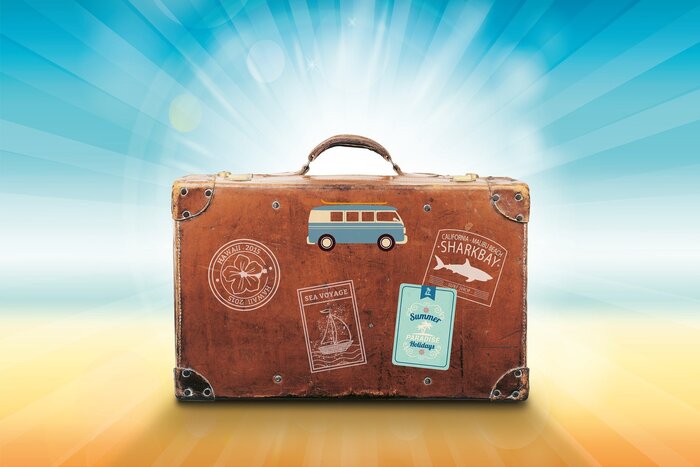
What about the new arrival?
Little Quid useful in this period of new arrivals in PVT or study permit
- Here, the informal “tu” is the law.
For my part, I was already used to it working in the world of TV where everyone addresses each other informally before arriving. However, I still can't address elderly people informally.
As soon as you enter a store: “Hello, how are you?” , immediately puts you at ease, relaxed atmosphere, it sets the scene.
Well, on the other hand, every time I come back to France and ask a saleswoman if I'm okay, I get looked at as if I'm sick, but it quickly became automatic.
Quebecers do not attach importance to social hierarchy and everyone is on the same pedestal.
- No kisses here, we prefer the big hug instead. (finally before Covid)
But the English-speaking side is more adept at these Hugs than the French-speaking side, I find.
I'm fine with not having to go around a whole group and kiss everyone, one by one, like in France, as long as you have 3 or 4 kisses to give to each person depending on the region you come from.
- City of orange cones
There is not a place in the city during the year where you will not see cones and where there are cones, there are roadworks. This orange cone is the icon of the city.
There is even talk of a Mafia in construction and road companies because they are everywhere, and often do the same work in the same places from one year to the next.
Potholes are everywhere in the city, the roads are broken.
- Squirrels replace our pigeons and rats (much cuter all the same)
They are part of the urban landscape, not to mention the raccoons that you can encounter rummaging through the trash.
You can recognize a French person by his propensity to take pictures of squirrels whenever he comes across one in a park or around the corner.
Here, Quebecers consider them rats.
They can do a lot of damage, tearing up trash cans, attacking the wiring of engines or the structures of houses.
- Quebecers all move on July 1st, which is also Canada Day and therefore a public holiday..
This is explained by the vast majority of leases here ending on June 30th.
If you are looking to furnish your apartment at a lower cost, take this day to go for a walk in the streets and rummage through all the objects left on the sidewalk for this occasion.
- Here, Quebecers eat dinner very early, between 5 p.m. and 6 p.m.
Here, after-work outings are called 5 to 7, as the name suggests, from 5 p.m. to 7 p.m. (but it often ends earlier if there are only Quebecers)
The French, however, have this aperitif culture which remains firmly anchored and even more so when the good weather arrives, and meeting up at the end of the afternoon until late at night on bar terraces remains our favourite activity.
Personally, I haven't changed my rhythm much compared to France, I have dinner at around 8pm. The difference with those who eat at 5:30pm is that I have my snack (or collation as it is called here) while they are already preparing the evening meal.
- No shutters on the windows
But you get used to it. You have blinds and blackout curtains, there are all kinds.
In American architecture, the windows are aligned with the exterior facade, which leaves no room for installing shutters.
- Montreal is the city of cycling par excellence (winter and summer)
With the arrival of spring, the BIXI (Vélibs of Montreal) are out and the many cycle paths give pride of place to this mode of transport
More and more safe paths separated from the road make this mode of transport pleasant.
- QC vocabulary to know to blend into the decor
Lots of false friends compared to our French from France
- Good morning
- Hello, how are you?
- THANKS !
- Welcome
- Bye
- Good morning
Confusing right?
Let's recap
Allo = Hello
Welcome = you're welcome / with pleasure (the " welcome " English)
Goodbye = hello
And it's not over yet
Here the meals are out of sync with ours.
Breakfast = Lunch
Lunch = Dinner
Dinner = Supper
"You can you ", who knows why we add the pronoun you orally in the interrogation questions
"Do you want a glass of water?" ?
You know = You know (I've taken it a lot into my vocabulary)
Fake = our " As a result " (so, therefore)
Pogner = to catch something or an illness but you use it in all sauces, many meanings
Capoter = no sexual allusion here, get upset, get excited or be in shock
Crooked = which is crooked, which is dodgy
Likewise = like that
It's boring = it's boring, it's crap, it's a shame
It's disgusting = another false friend with our French meaning in France. Here, it's the opposite, it's great, super, excellent
It's cold = it's cold
A tank = a car
My girlfriend / my boyfriend = my girlfriend my boyfriend
Boyfriend can be used as a buddy between guys more
Flip-flops = flip-flops
Camisole = tank top
Shoes = footwear
Stockings = socks
Noun = female sex
Foufounes = buttocks
Kids = balls (almost all French people have been fooled in discussions about children to exclaim "but I don't have any kids" = moment of intense embarrassment)
And so on!
So I hope this little quiz for newcomers will help you 😉

